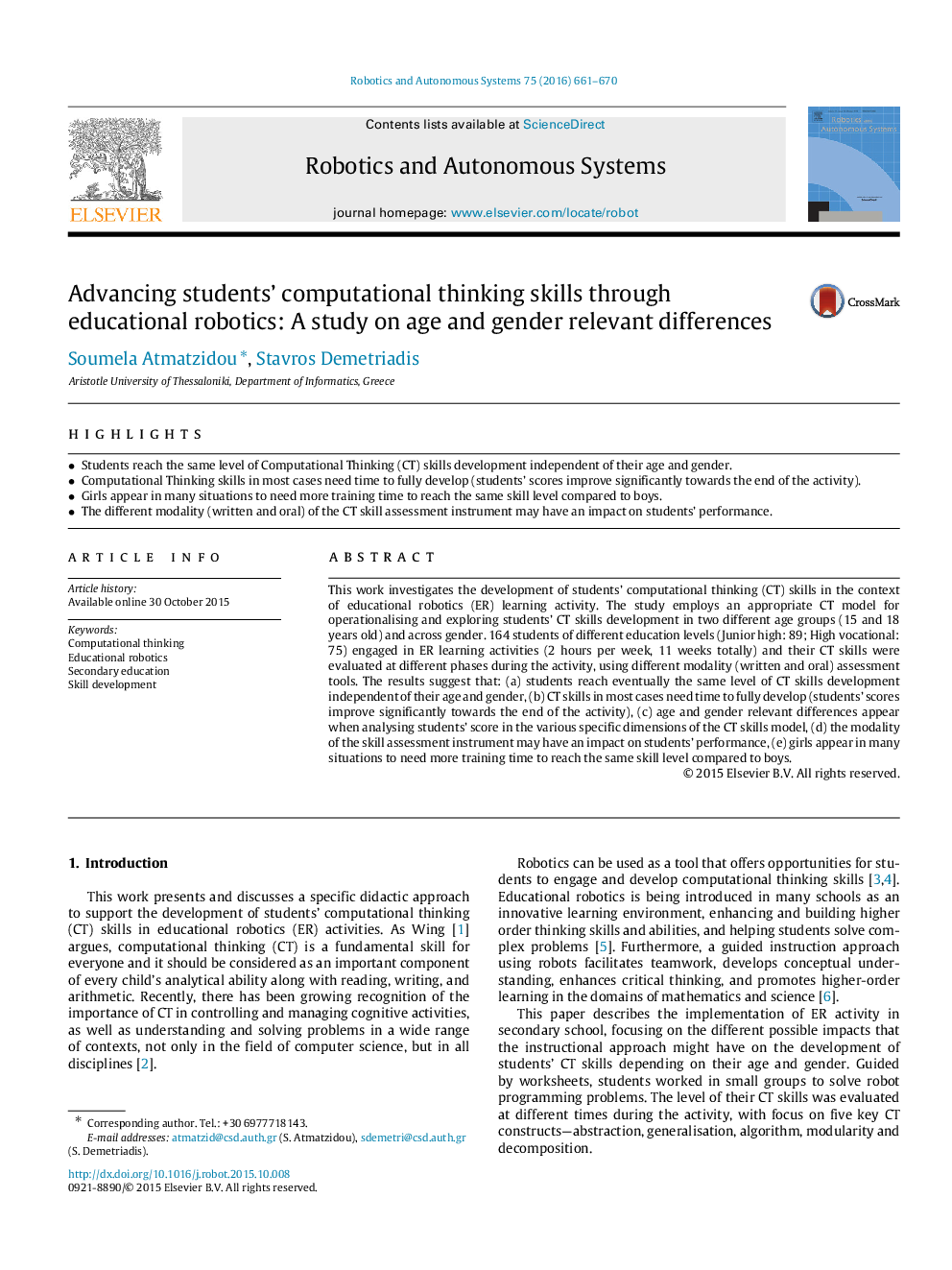| Article ID | Journal | Published Year | Pages | File Type |
|---|---|---|---|---|
| 10326753 | Robotics and Autonomous Systems | 2016 | 10 Pages |
Abstract
This work investigates the development of students' computational thinking (CT) skills in the context of educational robotics (ER) learning activity. The study employs an appropriate CT model for operationalising and exploring students' CT skills development in two different age groups (15 and 18 years old) and across gender. 164 students of different education levels (Junior high: 89; High vocational: 75) engaged in ER learning activities (2 hours per week, 11 weeks totally) and their CT skills were evaluated at different phases during the activity, using different modality (written and oral) assessment tools. The results suggest that: (a) students reach eventually the same level of CT skills development independent of their age and gender, (b) CT skills in most cases need time to fully develop (students' scores improve significantly towards the end of the activity), (c) age and gender relevant differences appear when analysing students' score in the various specific dimensions of the CT skills model, (d) the modality of the skill assessment instrument may have an impact on students' performance, (e) girls appear in many situations to need more training time to reach the same skill level compared to boys.
Related Topics
Physical Sciences and Engineering
Computer Science
Artificial Intelligence
Authors
Soumela Atmatzidou, Stavros Demetriadis,
